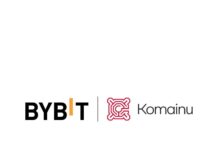
A blockchain-powered decentralized network can create trust within lending ecosystems and unlock massive new financing for underserved small businesses
According to the International Finance Corporation (IFC), there are 200-245 million unserved formal and informal Micro, Small and Medium Enterprises (MSMEs) globally, which present an estimated $2.1 – $2.6 trillion dollar credit gap.
This is largely because many small business owners in emerging markets such as India, Myanmar, Kenya, and Colombia lack a documented track record of their creditworthiness from an institutional lender. Across hundreds of millions of borrowers, inadequate small business finance exerts downward pressure on the local and global economy.
Some of these individuals are forced to rely on loans from friends and family at a high social cost. Others may borrow from neighborhood moneylenders and “loan sharks” at interest rates as high as 100% per year. More commonly, would-be borrowers simply avoid borrowing altogether, and deplete savings or forego the spending they planned.
The untapped potential of the informal sector
Fortunately, many small business owners without traditional security or a credit score generate a wealth of valuable financial data. This information is tied up with service providers who coordinate their supplier payments, staffing costs, money transfers, debit card swipes, utility payments, online sales, e-commerce transactions and more. For example, India’s largest independent card acquiring network, Mswipe, processes millions of credit and debit card transactions daily for nearly 400,000 merchants. This information paints a vivid picture about a business and entrepreneur.
Today’s lending markets [have poor plumbing]
But today’s lending markets aren’t set up to ensure that rapidly growing small business data reaches lenders who need it to approve loans. Digital service providers closely guard user data. While they recognize the value in sharing information with lenders for credit evaluation, they lack any standard method of partnering. At the same time, lenders have no clear way to know which data providers are trustworthy and have reliable data on potential borrowers.
Since each partnership becomes a bespoke integration between two parties, it can take months for a single data provider and lender to identify each other, assess trustworthiness, negotiate commercial terms, and then complete technical integration. When one considers all the potential data sources, database formats, lenders and loan arrangements in any given market, it becomes obvious that this methodology won’t scale.
One answer is a centralized system that gains the trust of both data providers and lenders to mediate the exchange of data. Some intermediaries have stepped into this role, including ArthImpact in India and LendingClub in the United States. While these platforms may have expanded lending to unserved segments, they add cost and require the trust of all parties to function. This limits their potential scale and rate of growth.
Shaking up financial markets with blockchain
Blockchain technology presents an opportunity to replace central authorities and lending platforms altogether to create an ecosystem of trust and transparency. When a gatekeeper or market-maker is out of the picture, lending costs are lower, transactions have less friction, and market players interact in more creative ways. Open, decentralized architecture has the potential to lay a foundation for lenders and borrowers to structure almost any loan type, and for a myriad of data and service providers to participate in an ecosystem.
Through standard open APIs, data providers and lenders can establish a more effective way to exchange data. Add to that a digital asset and public blockchain, and the system becomes a real-time record of loan disbursements and repayments. The reputation – of borrowers, lenders and data providers – would become transparent and irrefutable.
Today’s global lending market needs a method for borrowers to control their financial data, securely send it to lenders, and build credit history as they repay their loans. A decentralized network can help bridge the lending gap between institutional lending capital and informal borrowers and make it viable to offer affordable financing to previously untapped borrower segments.
The result? A lending market that is inclusive and profitable for all participants.
Gautam Ivatury is the Co-Founder and CEO of LendLedger, a decentralized network that connects data providers, lenders, and borrowers for secure, transparent, cost-effective, and innovative interactions. LendLedger unlocks digital credit data on informal and small business borrowers, making it viable for lenders to offer trillions in loans to untapped segments.
[newsletter_form lists="1"]










